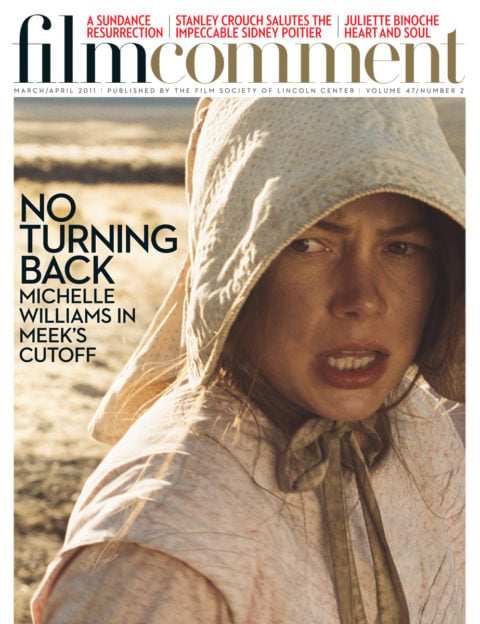
Have you heard the fantastic news? The latest Buddho-surrealist jungle story from Thai visionary Apichatpong Weerasethakul has won the Palme d’Or at Cannes! What? You’d heard already? Oh. Well, okay . . . but you probably haven’t heard that it’s filled with loping monkey ghosts with eyes like cigarette embers in a pitch-black cave, have you? Drat! Then lemme tell you about the scene where an extraordinarily homely princess surrenders herself to the whiskered oral affections of a catfish beneath a waterfall… Damn, you’d heard that too?!
The great news is that everybody who cares about cinema has already long been stoked about seeing Uncle Boonmee (with U.S. theatrical audiences just now getting their chance), and well they should be: magical, baffling, mirthful, sublime—it’s everything it’s cracked up to be. So what more can I really tell you that you haven’t already heard, other than to reiterate that 1) yes, you should see this movie immediately, because it’s fantastic, and clearly one of the best films of the year, and that 2) you should then wait a couple of weeks (or until the DVD comes out), and see it again? It is, after all, a film about recurrent visions and round-trip journeys: a movie not just about previous incarnations but about the possibilities of multiple and diverging paths into the future and out of the past; about parallel planes, phantom meanings, ghostly return engagements, interspecies transmogrification, and the double life of each and every Apichatpong movie—where the rarified ultramodern Thai art films of tomorrow and the hoary residues of a thousand cheapo Thai ghost movies of the not-so-distant past always seem to collide in a softly glowing neon chimera of everything cinema might possibly be.
But let’s go back to “baffling” for a minute, because that’s what all of Apichatpong’s movies are for every viewer their first time through. It wasn’t until my second sitting with Uncle Boonmee, for example, that I realized—for all of its haunted caves and gossamer/ghostly mosquito nettings, its spooked water buffalo, and fade-in, fade-out visions of our hero’s late wife—that we never actually learn anything about Uncle B’s past lives at all. Of Boonmee’s ape-furred, ruby-eyed son Boonsong’s crypto-Seventies Thai Communist lifestyle swinging in the trees with his simian spouse and family—yes, of that we hear. Of Apichatpong’s longterm affection for Kiarostami, so lovingly evoked in the languorous takes where Jen (Jenjira Pongpas) strolls among the low boughs of a tamarind grove, before joining Boonmee (Thanapat Saisaymar) for a taste of honey straight from the bee farmer’s hives—yes, of that we also learn. But of Uncle Boonmee’s past lives? Not a whisper. Dying of kidney failure, Boonmee’s not even certain which karmic path has delivered him to his imminent fate. Was it because he killed too many Communists (disenfranchised Thais not unlike himself, hiding from government persecution in the countryside’s remotest extremes) when he was fighting for his nation? Or because he carelessly stepped on too many ants while walking guilelessly across his own land?
What we do know is that every new film from Apichatpong is a reincarnation of his last, of all of his own previous films, video pieces, and installations, and of the entire past of his nation’s filmmaking. And that just because Uncle Boonmee may not have told us everything we might like to know this time around, we shouldn’t be at all surprised if, just because he’s dead, he’s not up and walking around—or floating through the night sky, or swinging through the jungle branches—in one of Apichatpong’s future lives, future films.








